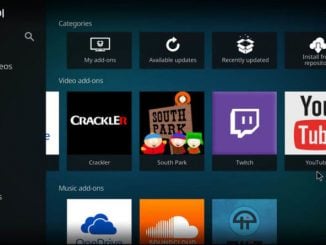
[ad_1]
A broad and detailed report from piracy tracking outfit MUSO shows that visits to pirate sites went up last year. The company recorded more than 300 billion visits in 2017, which suggests that “piracy is more popular than ever.” TV remained the most popular category and most pirates prefer streaming over torrents or direct downloading.
 Despite the growing availability of legal options, online piracy remains rampant. Every day pirate sites are visited hundreds of millions of times.
Despite the growing availability of legal options, online piracy remains rampant. Every day pirate sites are visited hundreds of millions of times.
Piracy tracking outfit MUSO has documented the piracy landscape with data from tens of thousands of the largest global piracy sites.
In its latest reportthe company recorded more than 300 billion visits to pirate sites last year alone. This is an increase of 1.6 percent compared to 2016.
More than half of all these visits (53%) are going to streaming sites, making that the most popular piracy tool. Torrent sites and direct download portals still have a significant user base, but follow at a respectable distance.
Most of the pirate visits came from the United States, followed by India and Brazil. Despite the various pirate site blockades, the UK also secured a spot in the top ten, ranked at the bottom with nine billion visits.
The top ten list favors large countries and with this in mind, there is a large player missing. China, which is often portrayed as a country where piracy is rampant, ended up in 18th place with ‘only’ 4.6 billion visits.
Visits per country
| # | Country | Billion visits |
|---|---|---|
| Data from Muso | ||
| 1 | United States | 27.9 |
| 2 | Russia | 20.6 |
| 3 | India | 17.0 |
| 4 | Brazil | 12.7 |
| 5 | Turkey | 11.1 |
| 6 | Japan | 10.6 |
| 7 | France | 10.5 |
| 8 | Indonesia | 10.4 |
| 9 | Germany | 10.2 |
| 10 | United kingdom | 9.0 |
Muso tracks piracy trends across various media categories and has spotted some interesting trends. TV-shows remain the most popular among pirates with 106.9 billion visits last year, followed by music (73.9 billion) and film (53.2 billion).
Mobile piracy is on the rise as well. For the first time, more people were accessing pirated TV content via mobile devices (52%) where desktops used to be the favorite device. In the music category, this difference is even more pronounced, with 87% using mobile devices.
Last year desktops were still preferred among movie pirates, but MUSO expects this will change in 2018.
According to MUSO co-founder and CEO Andy Chatterley, these data show that piracy remains a sizable threat, something we also hinted at in the recent past.
“There is a belief that the rise in popularity of on-demand services – such as Netflix and Spotify – have solved piracy, but that theory simply doesn’t stack up. Our data suggest that piracy is more popular than ever,†Chatterley says.
While it’s hard to make historical comparisons without good data, it’s clear that piracy is still rampant. And with more people coming online year after year, the potential audience keeps growing.
Also, it is worth noting that the total piracy landscape is even larger than MUSO shows. In recent years many people have switched to pirate streaming boxes. These are not included in MUSO’s dataset, which relies on data provided by SimilarWeb, among other sources.
That said, the overall conclusion that the piracy audience is massive, and not to be ignored, remains the same.
“The piracy audience is huge and yet for the most part, it’s an opportunity that’s completely ignored,†Chatterley says.
“It’s important that the content industries embrace the trends emerging from this data, not only in strategic content protection, but also in understanding the profile of the piracy ‘consumer’ for better business insight and monetizing these audiences,“ MUSO’s CEO adds.
[ad_2]





Be the first to comment